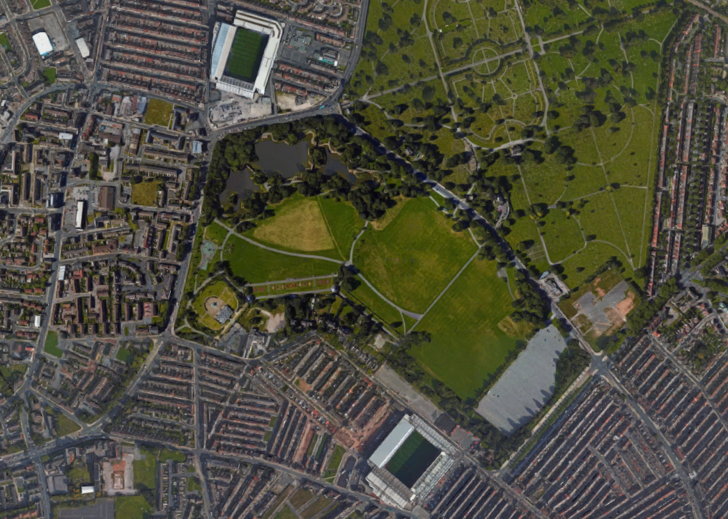
Every football match is worth the same number of points when it’s comes to league games. Every football match will result in you either progressing or getting knocked out when it comes to cup games.
Theoretically, then, every football match should matter the same amount as every other one. Yet that is demonstrably not true when it comes to derby games between fierce rivals. When that happens there’s so much more than just points or progression to care about: There’s local pride, too.
Elsewhere on the site we’ve written about footballing rivalries, yet derby games are even more heightened than that. It’s not just about wanting to get one over on a rival club, it’s about the ability to head into the work the next day and lord it over that lad in accounts who’s always telling you that his club is the best and yours is rubbish.
Proper derbies can split families apart on match days. These are the matches that make people want to rip someone’s arms off and hit them with them when they say football is ‘only a game’. Here we’ll have a look at the top ten derbies from around the world, according to us.
What Does ‘Derby’ Mean In Football?
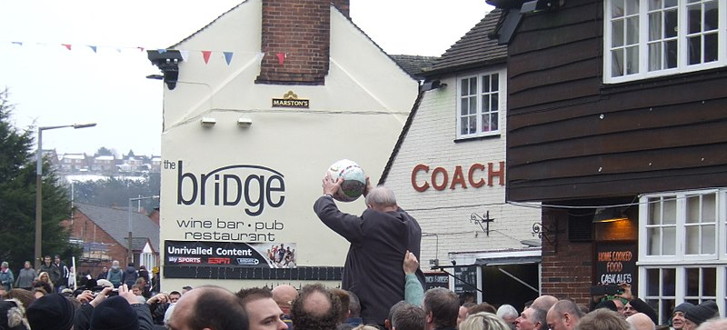
It’s important to outline what exactly a ‘derby’ is before we go any further. Some people call any game between two teams that have a rivalry a ‘derby’ and in the strictest sense of the word that may well be true. Yet what we’re talking about is a local derby between two teams that share a city. Barcelona and Real Madrid are two of Spain’s must successful teams, for example, but their match isn’t a true derby.
There is some confusion over where the word comes from. A small town called Ashbourne in Derbyshire has a folklore that says that they started it. Every year since the twelfth century they have played the “Royal Shrovetide Football Match”. It takes place over three miles and the rules ask for no ‘unnecessary’ violence to be used. The match sees folk from either side of the river go up against each other and because the town is in ‘Derbyshire’ they say that’s where the word ‘derby’ comes from.
As always with the origins of a phrase, dispute is common. It seems more likely that they actual origin is the Derby horse race that has taken place in Epsom every year since 1780. In its strictest sense, therefore, it relates to any sporting event that someone wants to use it for. The first time it’s believed to be have been used in print in relation to a football game was in October of 1914 when the Daily Express wrote an article that mentioned the ‘local derby between Liverpool and Everton’, so there’s no better place to start…
Top Ten Football Derby Matches
Liverpool v Everton
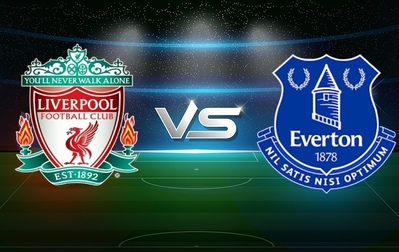 For years this all Liverpool clash was known as the ‘friendly derby’, owing to the fact that you would often find Liverpool and Everton supporters in the same family. During the 1980s they dominated the top-flight in England, to the extent that in the 1984 League Cup final the two sets of supporters joined together at Wembley to sing chants of “Merseyside, Merseyside, Merseyside”.
For years this all Liverpool clash was known as the ‘friendly derby’, owing to the fact that you would often find Liverpool and Everton supporters in the same family. During the 1980s they dominated the top-flight in England, to the extent that in the 1984 League Cup final the two sets of supporters joined together at Wembley to sing chants of “Merseyside, Merseyside, Merseyside”.
The fixture has become a bit more fiery in recent times, however, and at the time of writing it has seen the most sendings-off of any game in English football. A lot of the bitterness stems back to English clubs being banned from Europe in the wake of the Heysel Stadium disaster of 1985. Everton were the reigning English champions and believed that they would have won the European Cup, but they never got to play in it. Since then the rivalry has only grown worse.
Inter Milan v AC Milan
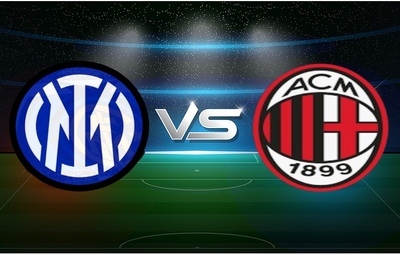 Known as the The Derby della Madonnina, the Milan derby is something of a clash of cultures. Traditionally supporters of Internazionale were seen as being members of the city’s bourgeoisie, whilst AC (often referred to simply as Milan) were the club for the blue collar worker. It even extended to how the two sets of fans were believed to make their way to the stadium, with Inter supporters riding motorbikes and Milan’s having to take public transport.
Known as the The Derby della Madonnina, the Milan derby is something of a clash of cultures. Traditionally supporters of Internazionale were seen as being members of the city’s bourgeoisie, whilst AC (often referred to simply as Milan) were the club for the blue collar worker. It even extended to how the two sets of fans were believed to make their way to the stadium, with Inter supporters riding motorbikes and Milan’s having to take public transport.
That is not the case nowadays, of course, as people from all over the world support each of the teams. Nevertheless the rivalry is as strong as ever, helped by the ever-changing nature of both clubs’ fortunes. What gives the Derby di Milano an extra bit of spice is the fact that it’s one of the only derbies in world football that takes place in the same stadium every time – Both Inter and AC call the San Siro their home, alternating the use of it on a week-by-week basis but coming together for their matches against each other.
Lazio v Roma
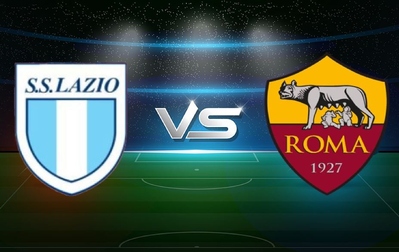 Staying in Italy for another match, there’s no getting away from how important the Derby della Capitale is to both teams that take part in it. The sad fact as that these two well-known clubs have only won five Italian top-flight titles between them, meaning the result of matches between them is unlikely to have a say in the destination of the Serie A title. Instead it’s about that local pride we talked about earlier, with the winners having the ultimate bragging rights until the next game comes around.
Staying in Italy for another match, there’s no getting away from how important the Derby della Capitale is to both teams that take part in it. The sad fact as that these two well-known clubs have only won five Italian top-flight titles between them, meaning the result of matches between them is unlikely to have a say in the destination of the Serie A title. Instead it’s about that local pride we talked about earlier, with the winners having the ultimate bragging rights until the next game comes around.
Of course that lack of importance in the result on the national stage adds a bit of fire to proceedings, with both clubs desperate to prove they are the capital city’s best side. It’s also impossible to mention this match without talking about Lazio’s ‘Ultras’, the most vociferous members of their fanbase. They have been known to display far-right tendencies in the past, including displaying flags with Nazi symbols on and indulging in racist chants towards any black Roma players. The political differences between the two sets of fans adds another dimension to the rivalry.
CSKA Moscow v Spartak Moscow
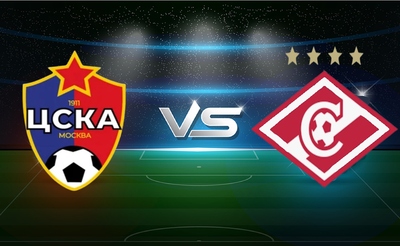 Speaking of political differences, there may not be a more politically charged game in world football than that between CSKA Moscow and their city rivals Spartak Moscow. The rivalry in this one is all down to who the two teams are believed to represent, with Spartak having been set up by a trade union and CSKA standing for ‘Central Sports Club of the Army. In other words, this is a match that sees the people who are distrustful of the authorities go up against a side that is nothing but authority.
Speaking of political differences, there may not be a more politically charged game in world football than that between CSKA Moscow and their city rivals Spartak Moscow. The rivalry in this one is all down to who the two teams are believed to represent, with Spartak having been set up by a trade union and CSKA standing for ‘Central Sports Club of the Army. In other words, this is a match that sees the people who are distrustful of the authorities go up against a side that is nothing but authority.
To give you a little bit more of an idea of just how ‘establishment’ CSKA are as a club, they are part owned by the Russian Defence Ministry. They have long been favoured by the Russian government and have therefore seen plenty of investment head their way over the years. Spartak may not be as well-looked after as their city rivals, but they have a significantly larger support base. Ultimately it comes down to a question: What’s more important in football, being popular or being successful?
Celtic v Rangers
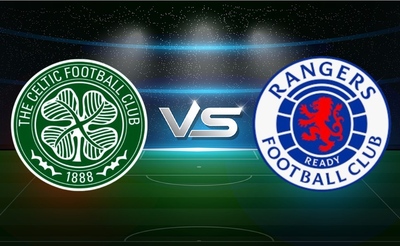 If the battle between CSKA and Spartak Moscow is all about politics then the clash between these two Glasgow based clubs has its basis in religion. The Old Firm didn’t start out that way, however. In fact, Celtic only started as a football club with the aim of raising money to give to disadvantaged people in the city. It wasn’t until the 1920s and 1930s that the religious differences came to the fore. That was when Catholic schools in the city began to get funding from local authorities, causing a sense of unfairness within the Protestant members of the city.
If the battle between CSKA and Spartak Moscow is all about politics then the clash between these two Glasgow based clubs has its basis in religion. The Old Firm didn’t start out that way, however. In fact, Celtic only started as a football club with the aim of raising money to give to disadvantaged people in the city. It wasn’t until the 1920s and 1930s that the religious differences came to the fore. That was when Catholic schools in the city began to get funding from local authorities, causing a sense of unfairness within the Protestant members of the city.
At the same time Celtic began to embrace their Catholic origins more and more, whilst Rangers intentionally became more Presbyterian. It’s not just the religious side of things in the city that influences the rivalry, though. There are also links to the Loyalist and Republican feelings of Northern Ireland, believe it or not. Linked to that is the desire of one club’s fans to be British and the others to be independently Scottish. All of that has taken something of a backseat in recent times, but the dislike between the two sets of supporters hasn’t gone anywhere.
Arsenal v Tottenham Hotspur
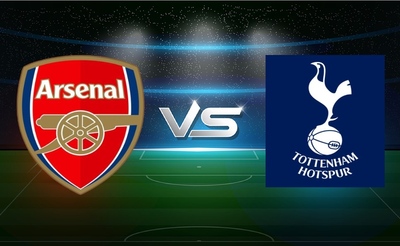 London isn’t just the capital city of England, it’s also the biggest. It’s so spread out that you will find clubs all over the place, with the likes of Chelsea, Fulham, West Ham, Millwall, Queens Park Rangers and Crystal Palace all believing that they play in the London derby. The biggest one as far as we’re concerned, however, has to be Arsenal and Tottenham Hotspur. This is a rivalry based on geography, really, with Spurs having been based in North London since their formation in 1882. Arsenal, on the other hand, started life in South London and only moved up North in 1913.
London isn’t just the capital city of England, it’s also the biggest. It’s so spread out that you will find clubs all over the place, with the likes of Chelsea, Fulham, West Ham, Millwall, Queens Park Rangers and Crystal Palace all believing that they play in the London derby. The biggest one as far as we’re concerned, however, has to be Arsenal and Tottenham Hotspur. This is a rivalry based on geography, really, with Spurs having been based in North London since their formation in 1882. Arsenal, on the other hand, started life in South London and only moved up North in 1913.
When the two clubs first met in 1887, the year after Arsenal were formed, there wasn’t much of a rivalry to speak of. The Gunners were a newly formed club looking to make their way in the world, whilst Spurs were relative old-hands. Everything was played out in a reasonably friendly manner until Arsenal moved from Plumstead to Highbury, around four miles from White Hart Lane, in 1913. From then on the rivalry took on a whole new meaning and they’ve never been able to play in a friendly manner since. All of that was made worse when Arsenal overtook Spurs in terms of success, going on to win thirteen top-flight titles compared to Tottenham’s two.
Benfica v Sporting Lisbon
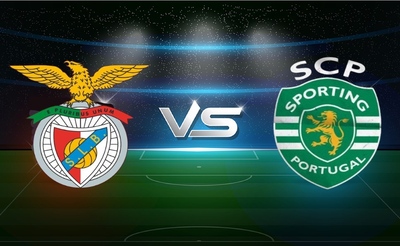 You know a derby means something when it gets given loads of different names. Known variously as the Derby Eterno, Derby da Segunda Circular or Derby da Capital, the Derby de Lisboa sees Sporting Lisbon take on Benfica in a game thats origins date back to 1907. That was the year in which eight Benfica players switched over to play for Sporting just before the first derby match between the two sides.
You know a derby means something when it gets given loads of different names. Known variously as the Derby Eterno, Derby da Segunda Circular or Derby da Capital, the Derby de Lisboa sees Sporting Lisbon take on Benfica in a game thats origins date back to 1907. That was the year in which eight Benfica players switched over to play for Sporting just before the first derby match between the two sides.
As with so many rivalries, it’s class that separates the two Portuguese teams. Benfica was founded by a group of students, whilst Sporting Lisbon was formed in 1906 and immediately bankrolled by a viscount. It will ease the consciences of Manchester City and Chelsea fans to know that financial doping was taking place in football long before they did it. Despite the fierce rivalry, this game rarely if ever sees any violence take place between the two sets of supporters. Something our next match could learn from…
Fenerbahce v Galatasaray
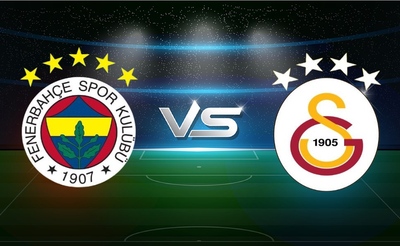 The ‘Intercontinental Derby’ might seem like a strange name to give a game of football that takes place between two clubs based in the same city, but to understand it you need to understand the geography of Istanbul. It is a city split in half by cultures, with a European flavour on one side and an Asian one on the other. It’s ironic that this most passionately played out rivalry started with a friendly game between the two teams, which Galatasaray won 2-0. It has been called many things since then, but friendly has rarely been one of them.
The ‘Intercontinental Derby’ might seem like a strange name to give a game of football that takes place between two clubs based in the same city, but to understand it you need to understand the geography of Istanbul. It is a city split in half by cultures, with a European flavour on one side and an Asian one on the other. It’s ironic that this most passionately played out rivalry started with a friendly game between the two teams, which Galatasaray won 2-0. It has been called many things since then, but friendly has rarely been one of them.
An event that perhaps best sums up the feelings of both sets of fans took place in the 1995-1996 season. Graeme Souness, never exactly known for his calm demeanour, was the Galatasaray manager and had got them to the final of the Turkish Cup where they faced Fenerbahce. They won the first-leg 1-0 at home, much to everyone’s surprise, and went on to win the trophy 2-1 on aggregate when they managed a 1-1 draw at Fenerbahce’s place. The home fans had been abusing Souness all game and he reacted by grabbing a Galatasaray flag and planting it in the middle of the pitch after the full-time whistle…
Manchester United v Manchester City
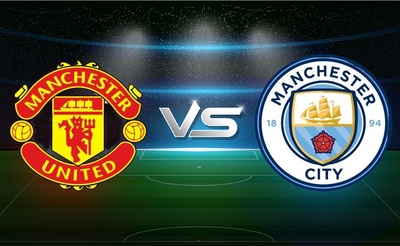 This one could easily be called the noisy neighbours v the prawn sandwich brigade, but is more commonly known simply as the Manchester Derby. It first took place in 1881 when St. Mark’s (Manchester City) welcomed Newton Heath (Manchester United) in a match that was referred to as ‘a pleasant game’ in the papers afterwards. That summed up the early years of this particular rivalry, with many supporters alternating which team they watched week on week up until the end of the Second World War, when allegiances were solidified.
This one could easily be called the noisy neighbours v the prawn sandwich brigade, but is more commonly known simply as the Manchester Derby. It first took place in 1881 when St. Mark’s (Manchester City) welcomed Newton Heath (Manchester United) in a match that was referred to as ‘a pleasant game’ in the papers afterwards. That summed up the early years of this particular rivalry, with many supporters alternating which team they watched week on week up until the end of the Second World War, when allegiances were solidified.
It was during the 1970s that things took a decidedly more bad tempered turn. In one match George Best broke the leg of Man City’s Glyn Pardoe, whilst in another both Mike Doyle and Lou Macari were sent off for violent conduct. It hasn’t eased off much over the years; for evidence have a look at Roy Keane’s deliberate foul of Alf-Inge Håland back in 2001. The bitterness between the two teams was increased firstly by Manchester United’s success during the 1990s and 2000s and then by Manchester City becoming one of the richest clubs in world football.
Atletico Madrid v Real Madrid
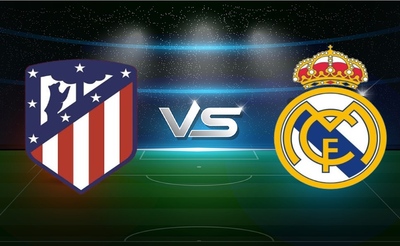 This list is obviously subjective and it could probably feature as many as fifty different games if we didn’t put a limit on it. However you could drop it down to five and the rivalry between these two Madrid sides would almost certainly still be on your list. Certainly the biggest derby in Spain this is every inch a clash of cultures, with Real Madrid’s decades of dominance aided and abetted by the club’s ability to spend money on Galacticos as if it’s toilet paper. Real are the ‘establishment’ club, whilst Atletico is the side you support if you’re more of a rebel. As is so often the problem, though, the establishment wins more often than not.
This list is obviously subjective and it could probably feature as many as fifty different games if we didn’t put a limit on it. However you could drop it down to five and the rivalry between these two Madrid sides would almost certainly still be on your list. Certainly the biggest derby in Spain this is every inch a clash of cultures, with Real Madrid’s decades of dominance aided and abetted by the club’s ability to spend money on Galacticos as if it’s toilet paper. Real are the ‘establishment’ club, whilst Atletico is the side you support if you’re more of a rebel. As is so often the problem, though, the establishment wins more often than not.
It wasn’t always like that. In fact, it used to be the case that Atletico was favoured by the establishment as it was the linked to the country’s airforce. Then, when Real began to win European Cups in the 1950s, Franco tried to make political hay out of by clearly favouring them. That was the moment the power shifted in El Derbi madrileño and it’s never shifted back. It would probably be fair to say that victory in this one matters more to Atletico than it does to Real, with the latter more likely to get worked up by the result of El Classico. Make no mistake, though, this one is as much of a bitter derby as any other on this list.
